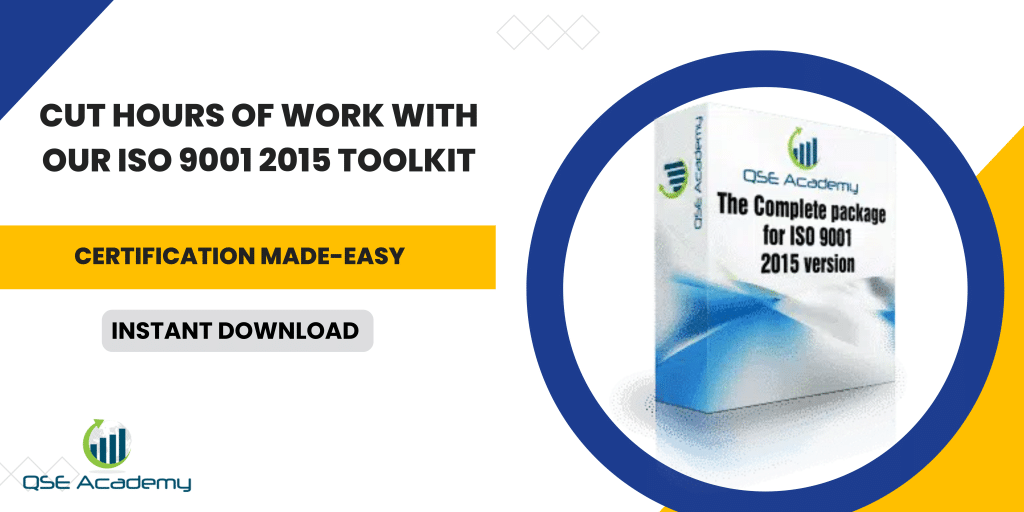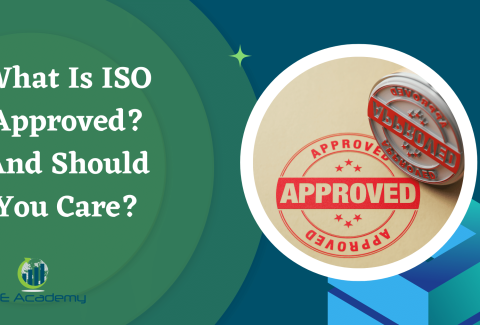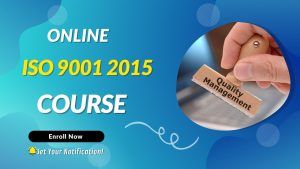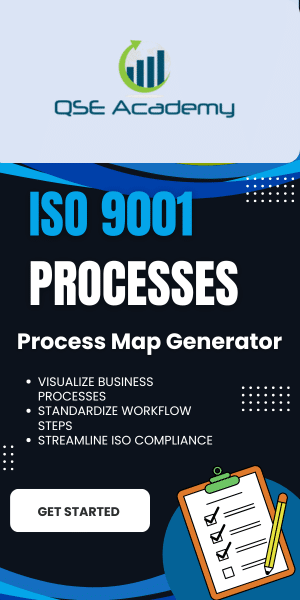How long does it take to implement iso 9001?
Last Updated on October 13, 2025 by Hafsa J.
How long does it take to implement iso 9001?
One of the first questions that comes up when businesses consider ISO 9001 certification is, how long does it take to implement ISO 9001? And honestly, it’s a great question. After all, implementing ISO 9001 isn’t just about checking off a few boxes—it’s about transforming the way your business operates to meet internationally recognized quality standards.
But here’s the thing: there’s no one-size-fits-all answer. How long it takes depends on a variety of factors, like the size of your company, the systems you already have in place, and how much time and resources you’re ready to dedicate to the process. For some businesses, it might take just a few months. For others, especially larger organizations, it could take closer to a year.
In this article, we’ll explore the ins and outs of ISO 9001 implementation and break down what influences the timeline. By the end, you’ll have a clear understanding of how long it takes to implement ISO 9001 and what you can do to streamline the process. Whether you’re starting from scratch or looking to refine your existing systems, we’ll help you figure out the best approach for your business. Let’s dive in!
Factors That Influence How Long It Takes to Implement ISO 9001
When it comes to answering the question how long does it take to implement ISO 9001, the reality is that it depends on a few key factors. Let’s break these down so you can get a better idea of what might impact your timeline.
1. The Size and Complexity of Your Organization
One of the biggest factors that determines how long it takes to implement ISO 9001 is the size and complexity of your business. A small company with just a handful of employees and straightforward processes can often move through the implementation process much faster than a large corporation with multiple departments and complex operations.
Think about it this way: the more moving parts your organization has, the more time it takes to align everything with ISO 9001 standards. From documenting processes to ensuring everyone is on the same page, larger or more complex businesses simply need more time to get everything in order.
2. Your Current Systems and Processes
Another major factor in how long it takes to implement ISO 9001 is whether you already have some form of quality management system in place. If you’re starting from scratch, you’ll need to develop policies, procedures, and documentation from the ground up, which naturally takes longer.
On the other hand, if your business already has a basic structure for managing quality, you’re ahead of the game. In this case, implementation might involve tweaking and refining what you already have to meet ISO 9001 requirements, which can save a lot of time.
3. The Resources You Dedicate to the Process
Let’s be real: implementing ISO 9001 takes effort. The more resources you’re able to dedicate to the process—whether that’s a team of employees, a dedicated project manager, or even hiring a consultant—the faster you can get things done.
If ISO 9001 implementation is treated as a side project with limited time and attention, it’s going to take longer. But when businesses prioritize it and allocate the right resources, the process becomes much more efficient.
4. Industry-Specific Requirements
The industry you’re in can also play a role in how long it takes to implement ISO 9001. For example, industries like healthcare, manufacturing, and food production often have additional regulations and requirements that need to be integrated into the quality management system. These extra steps can extend the timeline, but they’re crucial for ensuring compliance.
5. Commitment from Leadership and Employees
Finally, the level of commitment from your leadership team and employees can make a big difference. ISO 9001 implementation isn’t just about writing down procedures—it’s about creating a culture of quality. When leadership is fully on board and employees are engaged, the process moves much more smoothly.
By understanding these factors, you can start to get a clearer picture of how long it takes to implement ISO 9001 for your business. Whether it’s a few months or closer to a year, the timeline ultimately depends on your unique situation. And don’t worry—no matter how long it takes, the results are always worth it!
A General Timeline for ISO 9001 Implementation
Now that we’ve talked about the factors that influence how long it takes to implement ISO 9001, let’s walk through a general timeline. Of course, every business is different, but this breakdown will give you a solid idea of what to expect at each stage of the process.
1. Initial Assessment and Gap Analysis (1–2 Months)
The first step in implementing ISO 9001 is figuring out where you currently stand. This involves conducting a gap analysis, which is essentially a deep dive into your current processes to identify what’s already in line with ISO 9001 standards and what needs improvement.
During this stage, you’ll also create an action plan for filling those gaps. For smaller businesses, this step can take just a few weeks. For larger or more complex organizations, it might take closer to two months. Either way, it’s a crucial foundation for the rest of the process.
2. Developing the Quality Management System (2–4 Months)
Next up is building your quality management system (QMS). This involves documenting your processes, policies, and procedures in a way that aligns with ISO 9001 requirements.
For businesses starting from scratch, this stage can take a few months as you work through all the details. If you already have some processes in place, you’ll likely spend this time refining and formalizing them. Training your team on the new system is also a big part of this phase, as everyone needs to understand their role in maintaining quality.
This is often the most time-intensive part of the implementation process, but it’s also where you’ll see the most transformation in how your business operates.
3. Internal Audits and Process Adjustments (1–2 Months)
Once your QMS is in place, it’s time to test it out through internal audits. These audits are like a practice run to see if your systems are working as intended and where you might need to make adjustments.
Think of this step as fine-tuning your processes. The goal is to identify any weaknesses or gaps before the official certification audit. Depending on the size of your organization, this stage typically takes one to two months.
4. Certification Audit (1–2 Months)
The final step in the process is the certification audit, conducted by an accredited certification body. During this audit, external auditors will evaluate your QMS to ensure it meets all ISO 9001 requirements.
If everything checks out, you’ll receive your ISO 9001 certification! If there are minor issues, you’ll usually have time to address them before the certification is finalized. From start to finish, this stage can take about one to two months.
So, How Long Does It Take to Implement ISO 9001 Overall?
When you put it all together, the total timeline for implementing ISO 9001 usually falls somewhere between 6 and 12 months. Smaller businesses with straightforward processes might lean toward the shorter end, while larger organizations or those starting from scratch may take closer to a year.
The key takeaway here is that the timeline isn’t set in stone—it’s flexible and depends on your business’s unique circumstances. And while it might take some time, every step of the process gets you closer to a system that supports long-term success.
Feeling more confident about how long it takes to implement ISO 9001? You’ve got this!
Tips to Speed Up the ISO 9001 Implementation Process
If you’re feeling a little overwhelmed by how long it might take to implement ISO 9001, don’t worry—you’re not alone! The good news is that there are plenty of ways to streamline the process and make it more efficient. While it’s important not to rush, there are smart strategies to help you save time without cutting corners.
Let’s dive into some practical tips to help you shorten how long it takes to implement ISO 9001 while still ensuring you’re set up for long-term success.
1. Conduct a Gap Analysis Early On
One of the best ways to speed things up is by starting with a thorough gap analysis. This step helps you understand exactly where your business stands in relation to ISO 9001 standards. By identifying the gaps upfront, you can focus your time and energy on the areas that need the most work.
Think of it as creating a roadmap for implementation—it keeps you from wasting time on things you don’t need and helps you prioritize the critical steps.
2. Use ISO 9001 Templates and Tools
Why start from scratch when there are so many helpful templates and tools available? ISO 9001 templates can guide you through the documentation process and ensure you’re covering all the necessary requirements.
From policy templates to process flowcharts, these tools can save you hours of work and provide a clear structure to follow. It’s one of the easiest ways to shave time off how long it takes to implement ISO 9001.
3. Hire an Experienced ISO Consultant
If you’re really looking to fast-track the process, consider bringing in an ISO consultant. These professionals know ISO 9001 inside and out and can guide you through the implementation process efficiently.
A good consultant will not only help you meet the standards but also tailor the system to your specific business needs. With their expertise, you can avoid common pitfalls and focus on what matters most, reducing how long it takes to implement ISO 9001.
4. Allocate a Dedicated Team
Implementing ISO 9001 is a team effort, but having a dedicated group of employees leading the charge can make a huge difference. Assigning responsibility to a specific team or project manager ensures that the process stays on track and doesn’t get pushed to the back burner.
When everyone knows their role and is working toward the same goal, the entire process runs more smoothly—and quickly.
5. Leverage Technology
Take advantage of technology to manage the implementation process. Tools like project management software, cloud-based documentation platforms, and quality management system software can help you stay organized and efficient.
By using technology to centralize your documentation and track progress, you’ll be able to move through the steps faster and with fewer hiccups.
6. Engage Employees Early
One of the biggest obstacles to ISO 9001 implementation is resistance to change. To avoid this, involve your employees from the very beginning. Explain the benefits of ISO 9001 certification, provide training, and encourage their input.
When your team is on board and actively participating, you’ll eliminate delays caused by misunderstandings or lack of buy-in. This can significantly reduce how long it takes to implement ISO 9001.
It’s All About Smart Preparation
While there’s no way to completely eliminate the time it takes to implement ISO 9001, these tips can help you work smarter, not harder. By focusing on preparation, using the right tools, and involving the right people, you’ll be able to streamline the process without sacrificing quality.
Remember, the goal isn’t to rush—it’s to create a quality management system that truly works for your business. And with these strategies, you’ll be well on your way to ISO 9001 certification in no time!
Common Misconceptions About How Long It Takes to Implement ISO 9001
When people first start exploring ISO 9001 certification, they often have a lot of assumptions about the process—especially about the timeline. Let’s clear up some of the most common misconceptions about how long it takes to implement ISO 9001. Understanding the truth can help you plan more effectively and approach the process with confidence.
1. “It Takes Years to Implement ISO 9001”
This is one of the most common myths, and it’s simply not true. While it’s true that the timeline varies depending on your business, most organizations can implement ISO 9001 within 6 to 12 months.
The key is preparation. If you approach the process step by step and focus on building a solid foundation, there’s no reason it should take years. For smaller businesses or organizations with existing quality management systems, it might even take less than six months.
So, if you’re worried that how long it takes to implement ISO 9001 will drag on forever, rest assured—it’s a manageable process!
2. “Small Businesses Can Do It in a Few Weeks”
On the flip side, some people believe that smaller organizations can breeze through ISO 9001 implementation in just a few weeks. While small businesses do tend to have shorter timelines, the process still takes time and effort.
Building a quality management system, training employees, and preparing for audits can’t be rushed if you want to do it right. Even for small companies, a realistic timeline is usually at least a few months. Remember, the goal is lasting improvement, not a quick fix.
3. “You Have to Be Perfect Before Starting”
Another misconception is that you need to have everything in place before you begin. This belief can unnecessarily delay the process, as businesses feel like they have to fix every issue beforehand.
In reality, the purpose of implementing ISO 9001 is to identify and address gaps in your current processes. You’re not expected to be perfect at the start. The process is designed to guide you in building a system that works, so don’t let this misconception hold you back.
4. “Hiring a Consultant Makes the Process Instant”
While hiring a consultant can definitely speed up how long it takes to implement ISO 9001, it doesn’t mean the process happens overnight. Consultants can provide expert guidance and help you avoid common pitfalls, but you’ll still need to dedicate time to build your systems, train your team, and prepare for audits.
Think of a consultant as a co-pilot—they can help you navigate the process, but you’re still the one flying the plane.
5. “It’s Only About Documentation”
Some businesses assume that ISO 9001 implementation is just a matter of filling out paperwork and organizing files. While documentation is an important part of the process, it’s far from the whole story.
ISO 9001 is about creating a culture of quality, improving processes, and empowering employees to deliver their best work. This takes time and effort beyond simply writing procedures. Understanding this can help you set realistic expectations for how long it takes to implement ISO 9001.
The Truth About ISO 9001 Implementation Timelines
The timeline for implementing ISO 9001 isn’t set in stone, and it’s definitely not as intimidating as some of these misconceptions might make it seem. By understanding what’s really involved, you can approach the process with the right mindset and avoid unnecessary delays.
So, how long does it take to implement ISO 9001? It depends on your business, but with the right plan, tools, and mindset, you’ll get there—and it’ll be worth every step.
Why the Time Invested in ISO 9001 Implementation Is Worth It
Let’s be honest—when you’re considering how long it takes to implement ISO 9001, it’s easy to focus on the time commitment and wonder if it’s all worth it. After all, months of work can feel like a lot when you’re already busy running a business. But here’s the thing: the time and effort you invest in ISO 9001 pay off in ways that go far beyond the certification itself.
Let’s chat about why the time spent on ISO 9001 implementation is one of the smartest investments your business can make.
1. Long-Term Efficiency Gains
One of the most valuable outcomes of ISO 9001 implementation is the boost in efficiency. The standard helps you identify bottlenecks, streamline processes, and eliminate waste.
While how long it takes to implement ISO 9001 might feel like a significant investment of time upfront, the long-term gains in productivity more than make up for it. Once your quality management system is in place, you’ll spend less time fixing mistakes and more time focusing on what really matters—growing your business.
2. Improved Customer Satisfaction
Let’s not forget that ISO 9001 is all about quality. When your processes are designed to meet customer needs consistently, satisfaction naturally goes up. Happy customers are more likely to return, recommend your business, and stick with you for the long haul.
So, while you might be counting the months during implementation, remember that every step you take is setting your business up for stronger customer relationships. And let’s face it—what’s better for business than loyal customers?
3. A Competitive Advantage
ISO 9001 certification is recognized around the world as a mark of quality and reliability. When potential clients or partners see that you’ve gone through the effort to meet these standards, it gives you a serious edge over competitors who haven’t.
Sure, how long it takes to implement ISO 9001 might be a concern in the short term, but in the bigger picture, it’s an investment in your reputation. Certification opens doors to new opportunities, markets, and partnerships.
4. Better Decision-Making
Part of ISO 9001 implementation involves tracking data, monitoring processes, and making decisions based on evidence. This approach doesn’t just help you during certification—it transforms the way you run your business.
With a stronger focus on data and measurable outcomes, you’ll be better equipped to make decisions that drive growth and innovation. It’s another reason why the time spent implementing ISO 9001 is a game-changer for your business.
5. A Stronger, More Engaged Team
Finally, ISO 9001 implementation isn’t just about systems and processes—it’s about people. When employees are trained on quality management practices and understand their role in the bigger picture, it boosts morale and engagement.
Your team will feel more confident and capable, knowing they’re contributing to a business that values quality and continuous improvement. And that sense of pride and ownership is something you can’t put a timeline on.
The Big Picture
Yes, how long it takes to implement ISO 9001 varies, and yes, it requires time and effort. But when you look at the bigger picture, the benefits far outweigh the initial investment. From improved efficiency to happier customers and a stronger reputation, ISO 9001 sets your business up for success in ways that last for years.
So, if you’re feeling hesitant about the timeline, remember this: every step you take toward certification is a step toward a stronger, more competitive, and more resilient business. And that’s time well spent.
Conclusion: How Long Does It Take to Implement ISO 9001?
So, how long does it take to implement ISO 9001? While the answer depends on factors like your business size, existing processes, and resource availability, the typical timeline falls between 6 to 12 months. For smaller businesses with simpler operations, it could be faster, while larger or more complex organizations might need a bit more time.
The key takeaway is this: the time you invest in implementing ISO 9001 is time well spent. Every step of the process—whether it’s conducting a gap analysis, documenting your quality management system, or preparing for audits—helps set your business up for long-term success.
Yes, it takes effort. But the benefits—like improved efficiency, happier customers, a stronger reputation, and a more engaged team—make it all worth it. Plus, with the right strategies, like using templates, hiring a consultant, or dedicating a team to the task, you can streamline the process and make the timeline more manageable.
At the end of the day, ISO 9001 implementation isn’t just about getting certified—it’s about building a stronger, more resilient business. So, if you’re asking yourself, how long does it take to implement ISO 9001, remember this: no matter how long it takes, the results will be worth every moment. You’re investing in a brighter, more successful future for your business—and that’s something to feel great about!
Ready to move from ISO 9001 theory to implementation?
Get the exact tools you need to write your documentation, train your team, map your processes, and pass your audit—without wasted time or guesswork.

make ISO standards less intimidating and more approachable for everyone.
Whether it’s ISO 9001, ISO 22000, or the cosmetics-focused ISO 22716, I’ve spent my career
turning complex jargon into clear, actionable steps that businesses can actually use.
I’m not here to call myself an expert—I prefer “enthusiast” because I truly love what I do.
There’s something incredibly rewarding about helping people navigate food safety and quality management systems
in a way that feels simple, practical, and even enjoyable.
When I’m not writing about standards, you’ll probably find me playing Piano 🎹, connecting with people, or diving into my next big project💫.
I’m an engineer specialized in the food and agricultural industry
I have a Master’s in QHSE management and over 12 years of experience as a Quality Manager
I’ve helped more than 15 companies implement ISO 9001, ISO 22000, ISO 22716, GMP, and other standards
My clients include food producers, cosmetics manufacturers, laboratories, and service companies
I believe quality systems should be simple, useful, and efficient.











